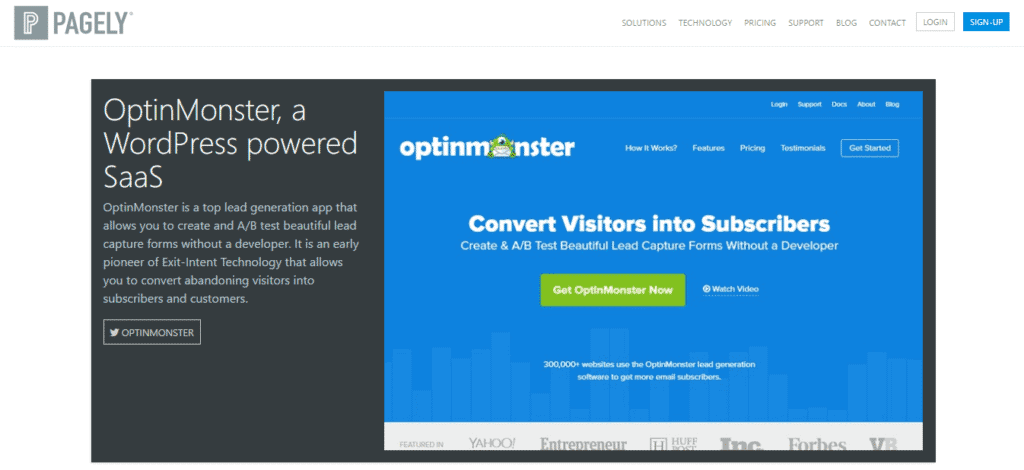Trust isn’t something that comes easy. I mean, we work and work and work to woo the right person into our lives.
Maybe you took a chance yesterday. Maybe you used Valentine’s Day to make a bold move and declare your love for someone.
Just like with love, when we attempt to woo a client, we hope to develop a sense of trust.
If I were to woo my biggest crush, I would try to show them I am trustworthy.
Sure, I would also espouse the benefits of me. I would talk about my sense of humor and my model good looks 🙂 but she has to know she can trust me.
How would I do this?
I would get my friends to tell her just how reliable I am. I would send them in, one by one, over a period of time to deliver some Todd-Testimonials.
This would put her at ease. This would make her take a look at me again.
And, before I hand her that box of chocolates, she would feel pretty comfortable knowing that I am someone worth spending time with.
Testimonials are powerful.
Testimonies can move mountains.
Testimonies can even help you close the sale for your WordPress business.
Why does it work?
Testimonies have the power to move mountains. There are a plethora or reasons why testimonies work. In this article, we are going to focus on four reasons.
Psychology – Mirror Neurons
Mirror Neurons is an effect that psychologists refer to for why we feel sympathy.
In terms of purchasing, it a reason we choose to imitate others, specifically when it comes to having certain items.
You know, the whole “keeping up with the Joneses thing” (not me!).
“Mirror neurons often act in cooperation with dopamine. The hormone flow is not caused by possession but by the act of purchasing. Even the view of a pair of cult jeans is enough. The joyful anticipation floods the brain with dopamine, and the credit card comes out of the wallet. Most purchasing decisions take as little as 2.5 seconds.” https://mag.ispo.com/2015/01/90-percent-of-all-purchasing-decisions-are-made-subconsciously/?lang=en
Popularity effect
To me, this is often the popularity effect. You know, popular by association or proximity.
And really, it’s not a bad thing. If someone exudes trust and reliability and he says the product or service is worth it, then, it is a very good bet that the product or service is, indeed, worth every penny.
However, it is just like being in high school. Everyone wants to be friends with the popular kids.
Emotional Purchasing
We really make purchases with our emotions, we just try to justify them with logic (or, our heads). Testimonials can put the purchaser over the top in making a decision.
According to Jennifer Bourn of Bourn Creative:
“The heart guides the buying decisions in your interactions and conversations, and the head guides the buying decision during the discussion of critical details, contract review and negotiations, and payment.
Once a prospect feels in their heart that hiring you would be a good decision, it’s up to you to make sure the head or brain is satisfied with the fine details and logic.”
Builds Trust
Testimonials, ultimately, build trust. They work to make us feel safer about our decision, and this goes back to the trust factor.
If our clients trust us, they will conclude to purchase from our company.
Wordstream’s Dan Shewan explains says:
“Customer testimonials are one of the most powerful trust signals you can use on your website and in your marketing campaigns, including landing pages, product and pricing pages, and even your AdWords ads. Persuasive testimonials from satisfied customers can sway even the most hesitant prospect, making them a potent weapon in your marketing arsenal.”
3 Ways to utilize testimonials
Testimonial Statements
One of the easiest ways to utilize testimonials is to get statements from your customers. These may be unsolicited.
All you have to do in that case is ask permission to use the statement.
Recently, I received an email from someone on my email list which praised my wicked ways of writing emails. I asked and received permission.
Gather those in a document, and then put them in the appropriate place on the website.
OptinMonster does this very well with its testimonials page. It is a mixture of top influencers and other entrepreneurs.

With two of the biggest online marketers on this page, it is hard to not to feel trust with using OptinMonster.
Case Studies
Case studies take testimonials to a new level. They offer a greater depth of the user’s experience with the product or service.
With a case study, you have the opportunity to talk about specific information such as datasets, how the product solved the customer’s problem, the before and after, and all of the other successes the customer had using your product.
Case studies can be implemented on your website or as a pdf formatted ebook that is downloaded.
Printed case studies can be taken to trade shows.
Case Studies are very versatile pieces of content that serve as evergreen content.
Check out the case study of OptinMonster at Pagely’s website.
https://pagely.com/case-studies/optinmonster-wordpress-saas/

Social testimonies
Are you listening to social media channels about your business? If you are, you may come across some glowing testimonies!
Follow up.
After getting permission, you can either screenshot the testimony or use embed.
Krist Hines explains more in this article at Kissmetrics
The article is a little old, but much of the information still applies.
How do you get testimonials
So, if testimonials are such a big part of purchasing success, how do you get testimonials?
There three easy ways you can solicit testimonials.
Ask your client
Ask your client to give a testimonial.
If you have a “perfect client,” one who is exactly the kind of client you want to work with and who sings your praises and refers other customers to you, that is the best customer to ask.
You can use some simple questions to prompt your customer to give you a testimonial. After all, your customer isn’t an excellent slayer of words and needs your help.
Copyblogger gives six terrific questions you can use to help get your testimonial.
Interview – do you have a great client? Interview them
Sit down and interview your client. This is very closely related to asking them questions and, in some cases, it is the same.
With asking questions, you can ask many different ways including over an email, in person, text, or on the phone.
How about buying them a cup of coffee or hopping on Skype and having a conversation?
Interview them about how your brand helped their business. Record the interview and filter through looking for the relevant information.
Some people do better when they are having a conversation.
Spelunk on social media
Social media can be a great place to find the nuggets of content for your brand.
As you are looking for social testimonials, you can implement those on your website.
Make sure to reach out to each person and ask if you haver permission to use their testimonials or praise.
Spelunk the depths of social media to find these kinds of testimonials.
You can even go deeper by having a conversation. It might lead to using the customer for a case study.
Wrapping it up
Testimonials are powerful persuasive techniques.
As the CopyMonk, Danavir Sarria, points out in his latest post:
“They are by far the most popular form of social proof. That’s because they are effective and pretty easy to attain. They are used so much that some sales pitches will just be filled with customer testimonials and nothing else.”
Henneke Duistermaatsays, one of the top online copywriters says,
” Powerful testimonials add credibility and boost your persuasiveness. They sell your services for you, so potential clients become eager to work with you.”
Can you afford to leave testimonials off your site?
How do you implement testimonials?
Do you have a page on your website for testimonials?







